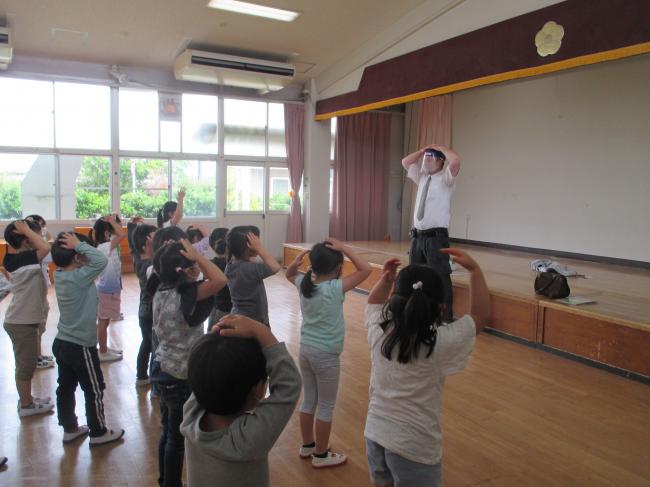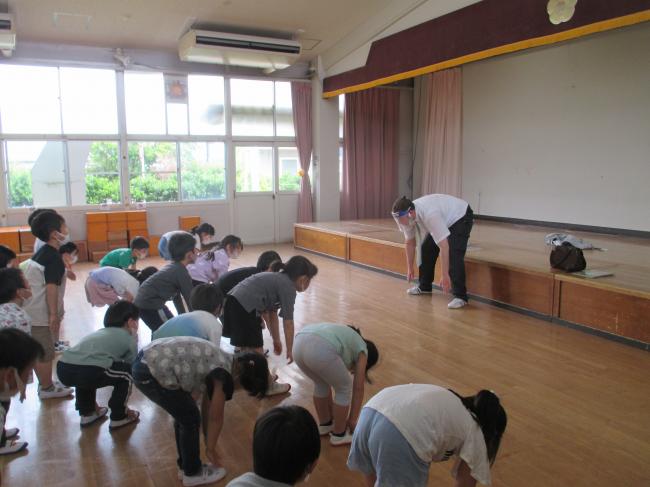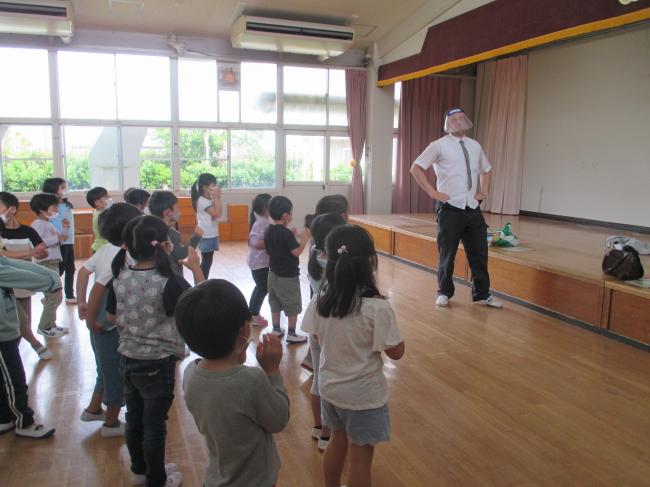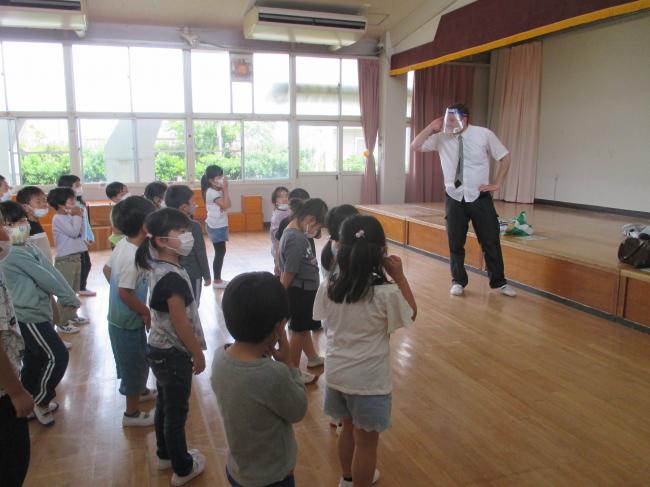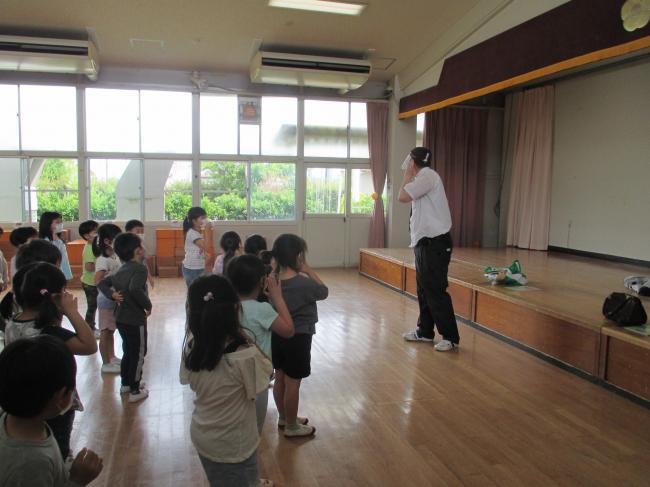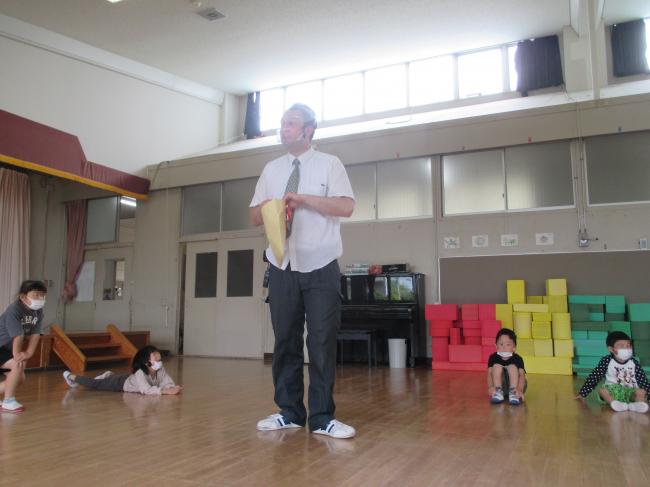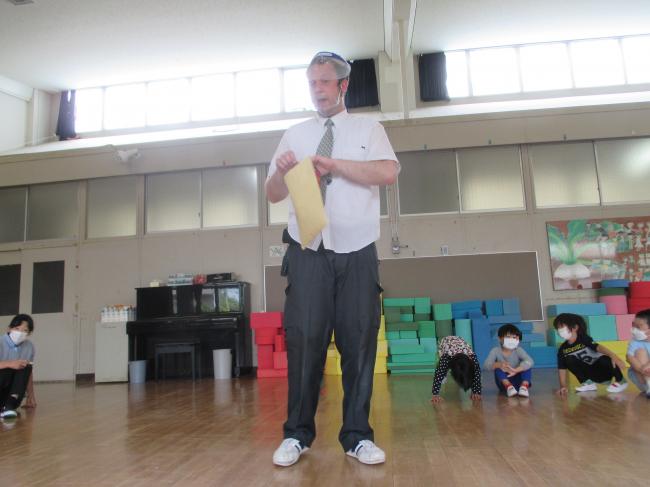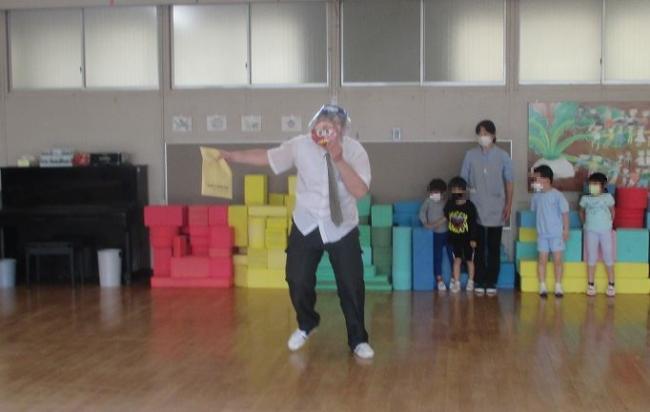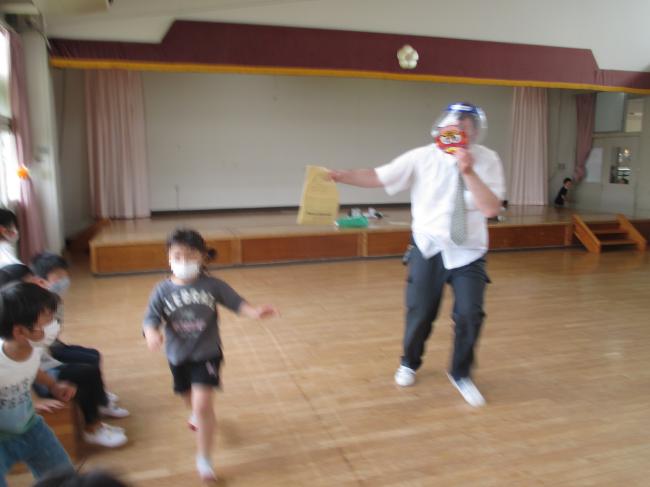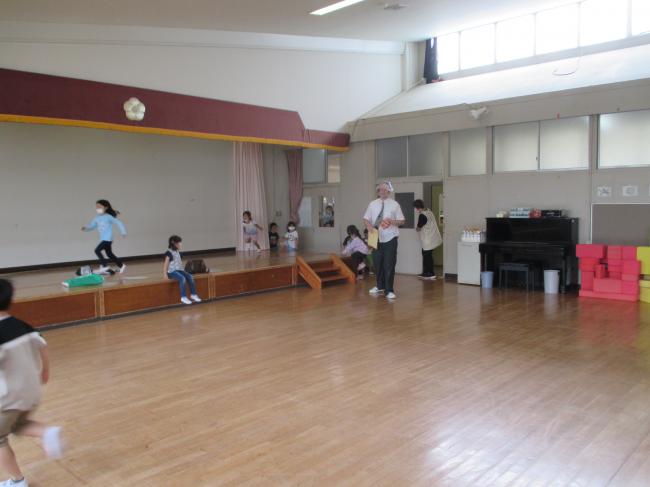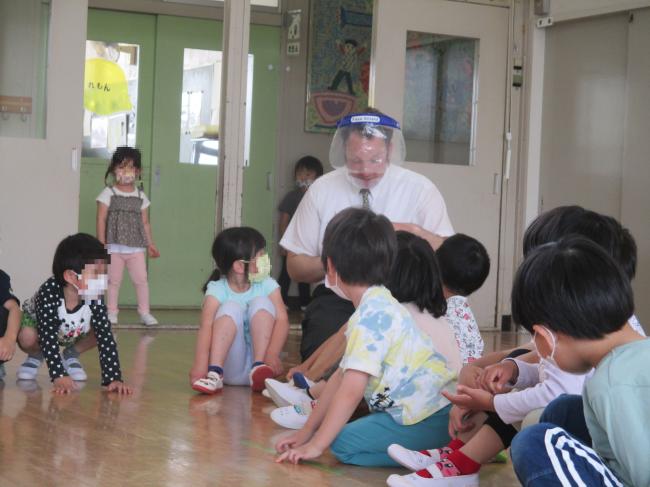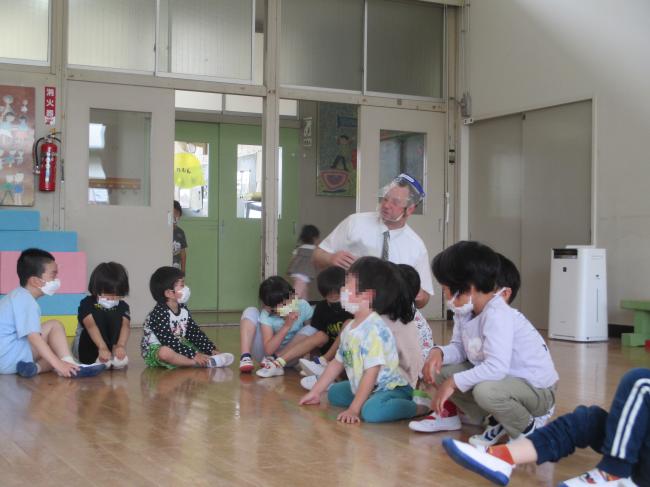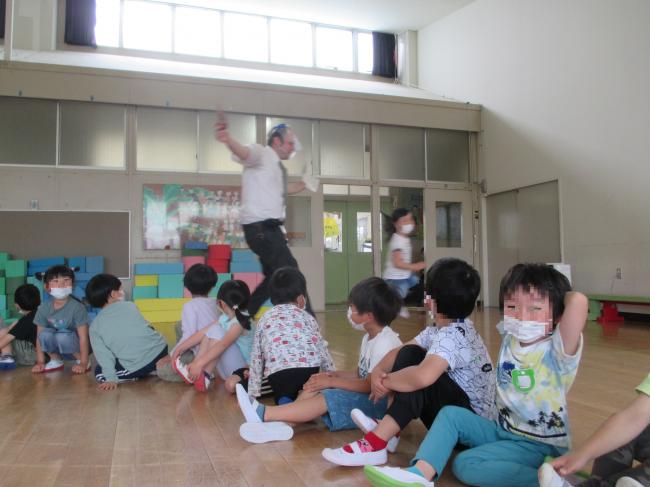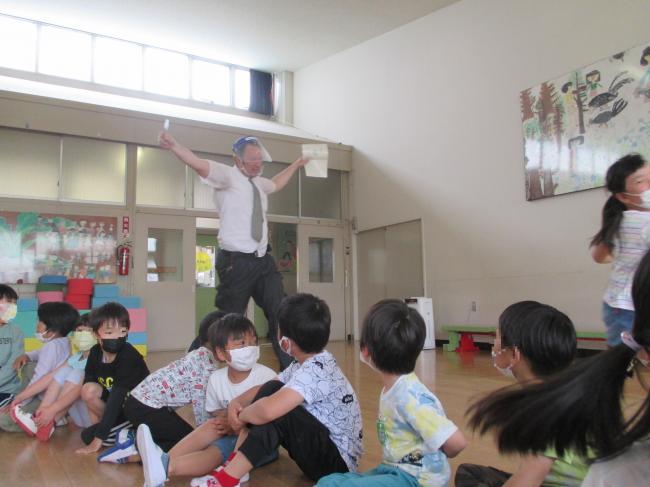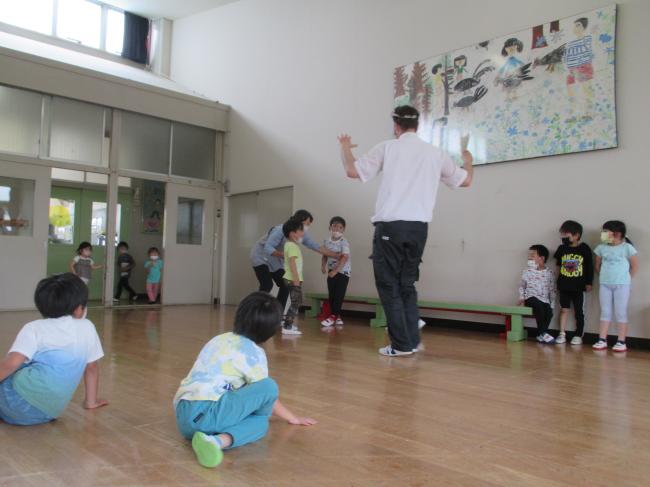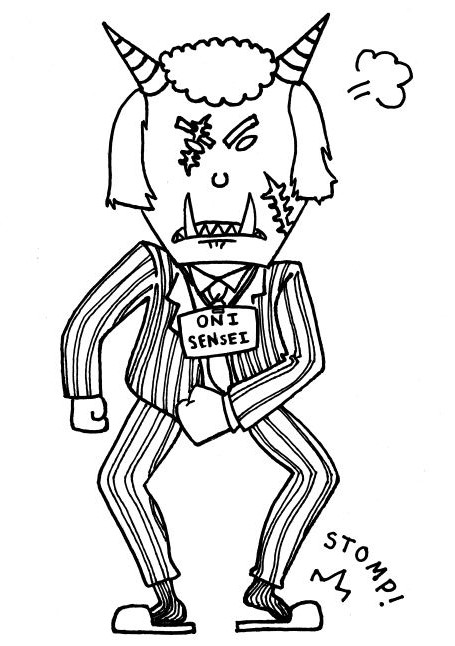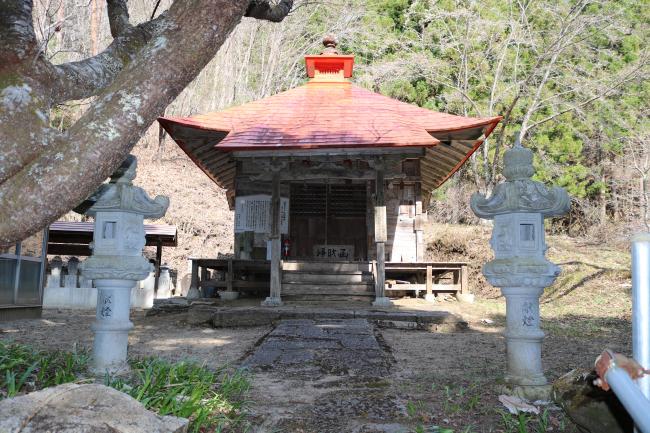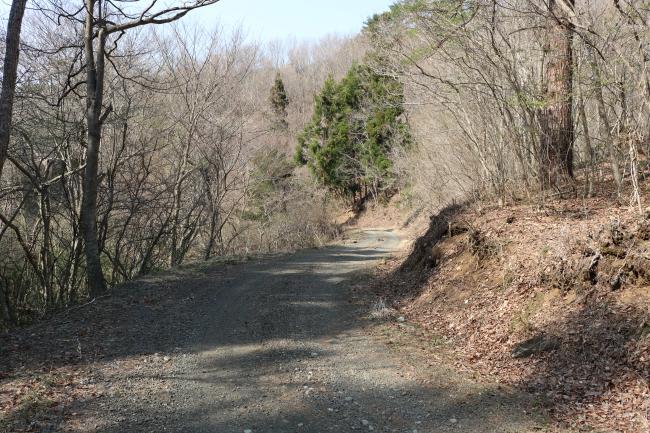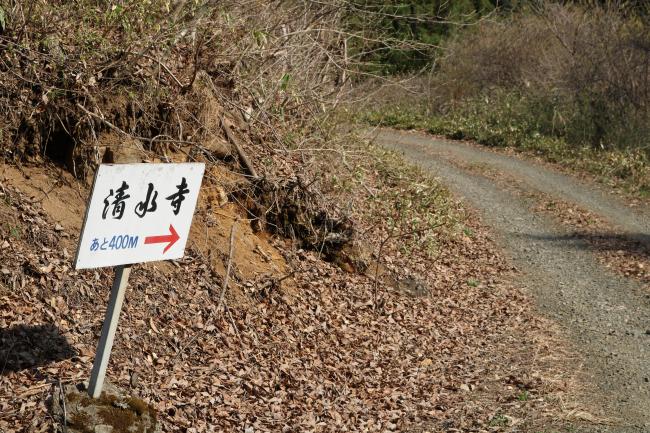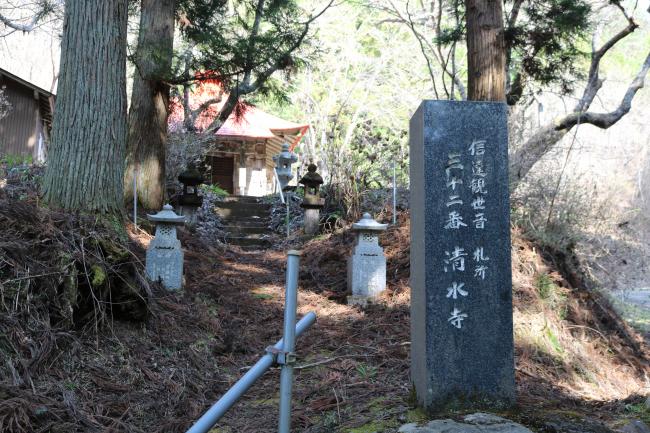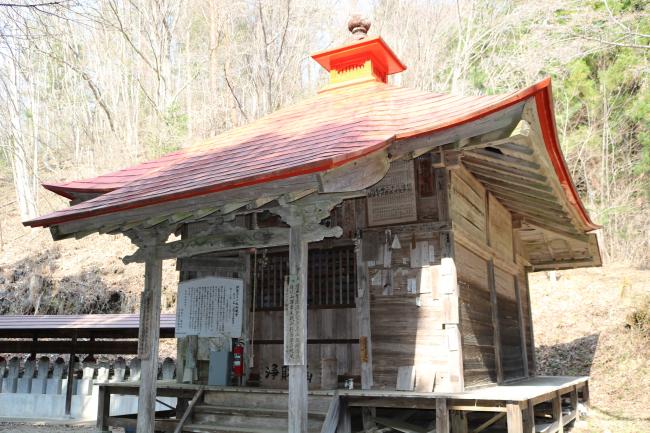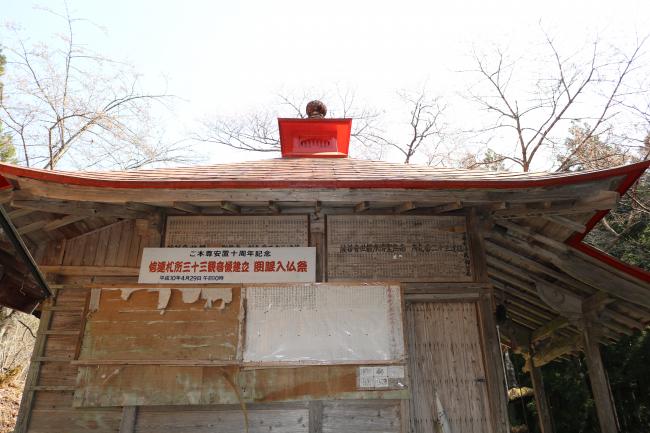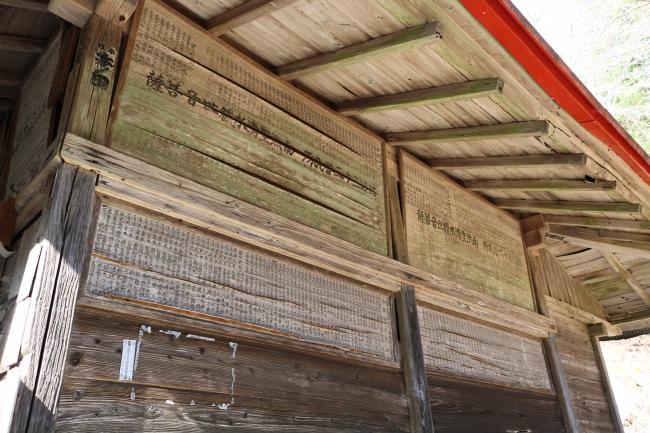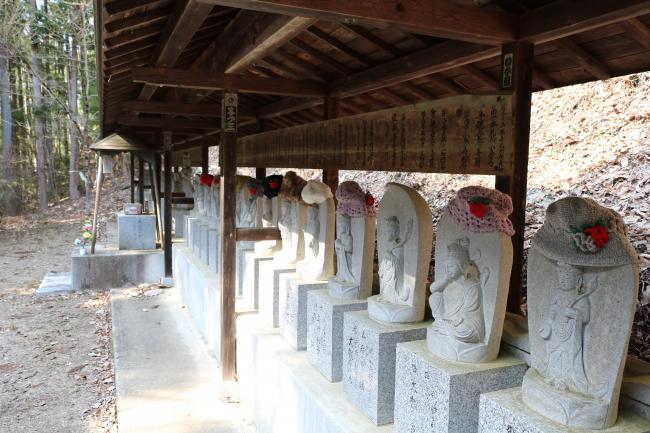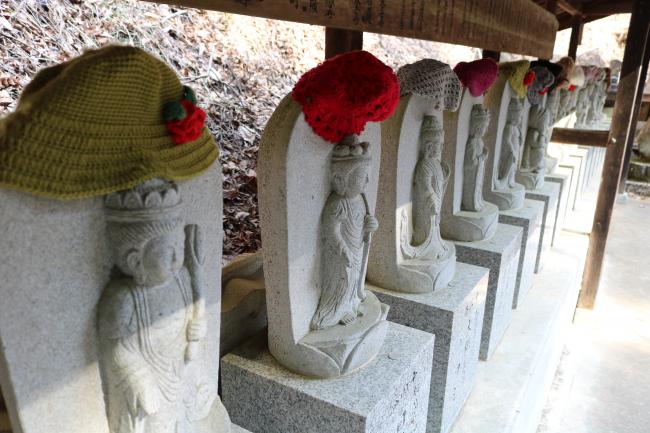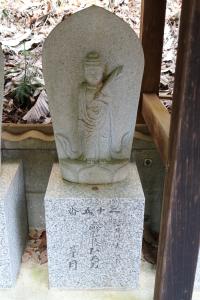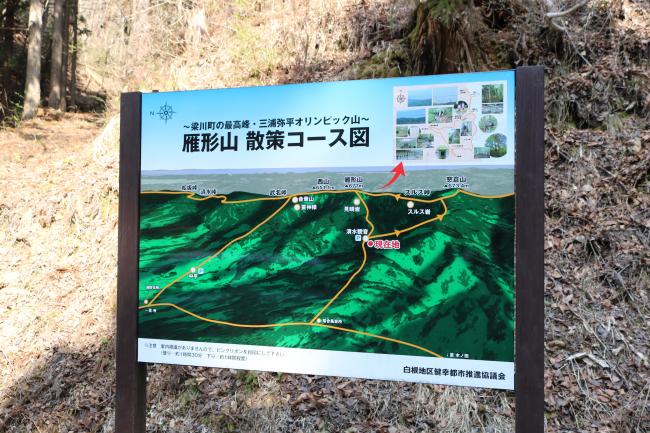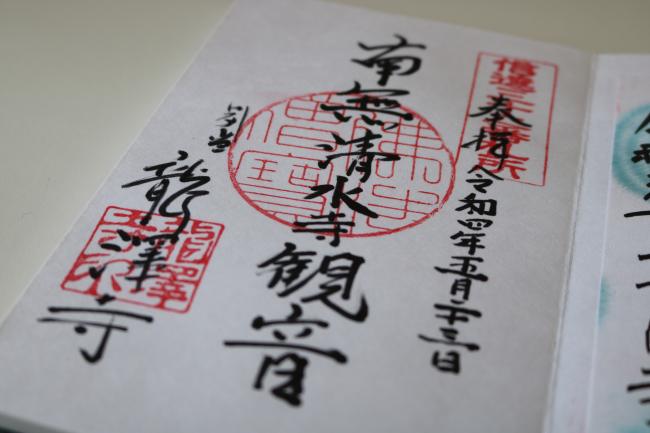本文
May's English Experience ・ 5月の英語体験
In the second English Experience of the academic year, children in Date City learned to give their names.
今年度の二回目の英語体験では、伊達市の子ども達は名前の教え方を習いました。
In English!
英語で!
As always, we began with singing and dancing the song Head, Shoulders, Knees, and Toes.
いつも通り、頭・肩・膝・爪先の歌と踊りで始まりました。
Then we played Simon Says.
そして「船長さんの命令ゲーム」をしました。
This month I added the new command, “Say your name”.
今月、新しい指示の「Say your name」(自分の名前を言って)を付け加えました。
I demonstrated by saying my name.
僕は自分の名前を言って実演して見せました。
Of course, the children merely repeated after me at first, an inevitable result of teaching them primarily in English.
すると、子ども達は最初に僕が言った言葉をそのまま真似しました。
Nonetheless, I refrained from explaining in Japanese, instead using gestures and facial expression to show my bewilderment at meeting twenty children named after me.
本当であれば自分の名前を言わなきゃいけないのに「トニー先生様」と名乗っちゃう子が20人くらいいたのです。僕はあえて日本語は使わずに、身振りや表情で子供たち教えてあげました。
Eventually I began to hear Japanese names; and by and by, the number of children named “Tony-sensei-sama” grew fewer and fewer.
やがて日本の名前が聞こえはじめ、「トニー先生様」と名乗っちゃう子ども達が少なくなりました。
After singing If You're Happy and You Know It, it was game time.
「幸せなら手をたたこう」を歌った後はゲームの時間でした。
The children sat in a circle, and I stood in the center, holding a large envelope.
子ども達は丸く座って、僕はその真ん中で立ち、大きな封筒を持っていました。
The children asked in unison, “What’s your name?”
子ども達は一斉に「What’s your name?」(あなたの名前は何ですか)と尋ねました。
Being old and forgetful, I have a tendency to forget such things; and so to answer their question, I dug my hand into the envelope and pulled out a nametag.
年を取っている僕は、忘れん坊になっておりますので、名前などを忘れるくせがあります。そのため、子ども達の質問に答えるために、封筒の中に手を入れて、名札を取り出しました。
“My name is ~”
「私の名前は ~」
The names on the nametags were generally traditional English names, or names from a certain Country of Light (and which often featured the prefix Ultra-).
名札にあった名前は大体が一般的な英語の名前、もしくは「ウルトラ(~)」などの名前がよくありました。
Yet every so often, the nametag was that of Oni-sensei.
しかしたまに、名札の名前は「鬼先生」でした。
When the children heard this name, they quickly scrambled to touch a wall, rendering themselves invulnerable to Oni-sensei.
子ども達はこの名前を聞くと、近くの壁に走り出し、壁を触る事でセーフになりました。
When all the children were safely touching a wall, Oni-sensei would disappear, and the children would return to sitting in a circle before asking again, “What’s your name?”
子ども達が皆壁を触っていれば、鬼先生が消えて、子ども達はまた丸く座り、「What’s your name?」と聞きました。
This process of drawing names and running from ogres was repeated until the children had asked for my name a few dozen times.
この名札を引き、鬼から逃げる手順を繰り返し、子ども達は僕の名前を数十回尋ねました。
As often as his name was given, Oni-sensei did not catch any children; and through his many attempts had only managed to work up an appetite.
鬼先生は名前を何度呼ばれても、子ども達を捕まえることができず、お腹ペコペコでした。
So he resorted to another method of procuring a meal: he ordered from a menu.
そのため、鬼先生は食事を得る方法を変えて、献立から注文し始めました。
The kindergarten teachers kindly wrote the names of the day’s most delicious children on a menu.
幼稚園の先生はその日の最も美味しそうな子ども達の名前をメニューの中に書いてくださいました。
(Sound familiar? Avid followers of these CIR Updates will recognize this activity from June 2021’s coverage of a visit to Kakeda Kid’s Club).
覚えていますか?この国際交流員日記の愛読者は2021年6月のかけだ児童クラブへの訪問の日記で同じ活動について読んだと思います。)
Oni-sensei asked each of the children their names, with the help of all the other seated children.
鬼先生は子ども達一人一人に名前を聞きました。
By this time, they were well versed in asking “What’s your name?”
この時点では、子ども達は「What’s your name?」を聞くのがもう上手になっていました。
The questioned child would answer “My name is ~”, often with the help of their friends.
聞かれた子どもは「My name is ~」(「私の名前は ~」)と返答します。周りの友達と一緒に答えた子ども達もいました。
Most children were not menu items; but a select few were, and soon found themselves running to the safety of a nearby wall.
ほとんどの子ども達は献立に出なかったが、名前を呼ばれた子は近くの壁まで走りました。
Somehow, a “nearby wall” was not always the nearest wall; and sometimes the route there involved multiple laps around the circle of seated children.
なぜか、「近くの壁」は必ず最寄りの壁ではありませんでした。中には丸く座っている子ども達の周りを何回も回る子もいました。
Kindergarteners are very creative.
子ども達はとてもおもしろいです。
To the children’s delight, Oni-sensei eventually gave up on procuring dinner for that day, and provided the children with presents instead.
結局鬼先生はその日の夕食を得るのを諦めて、子ども達にプレゼントを配りました。
As usual, it consisted of a coloring page and wordsearch; you can find it by using the link below.
このプレゼントはいつも通り、塗り絵と単語探しプリントです。下のリンクになります。
Oni-sensei may appear in future English Experiences as well, so look forward to upcoming CIR updates!
鬼先生はこれからの英語体験にも出るかもしれませんので、これからの国際交流員日記をお楽しみにしてください!
(Posted by: Tony ・ 作成者:トニー)
The Kannon of Seisui Temple ・ 清水寺観音
The third installment of our Shintatsu 33 Kannon CIR Update series is the Kannon of Seisui Temple, in Yanagawa’s Shirane Area.
信達三十三観音の連続取材の三回目は梁川の白根地区にある清水寺観音です。
It is considered the most remote of all the Shintatsu 33 sites; and indeed, it is very deep in the mountains.
信達三十三観音の最も離れた所と言われていて、実に深山です。
So deep, that I began to worry if I was traveling down the wrong gravel path.
とても山奥なので、違う砂利道を通っているのかと心配していました。
But then I saw the sign, and was granted the faith to carry on.
しかし、標識を見ると安心ができて、前に進みました。
Finally I arrived.
そして、たどり着きました。
Since I visited by myself, I didn’t have an opportunity to see the interior of the Kannon hall; but even just examining the exterior made the trip worthwhile.
一人で参りましたので、観音堂の内部が拝見できませんでしたが、外を見るだけで満足できました。
It was easy to see that, despite its remote location, this Kannon hall is well supported by the community.
離れた所にあっても、この観音堂は地域の方々にとても大切にされているとすぐにわかりました。
This can be seen by the lists of monetary donors that cover the building.
建物に掛けている寄贈者の名前が書いてある板はその支援の印の一つです。
But the most spectacular sign of support is the adjacent row of thirty-three Kannon statues.
しかし、最も壮観な支援の印は隣にある33体の観音様の像の列です。
I was surprised to find that devotion is shown not just through monetary contributions, but also through the faithful’s employment of their famous knitting abilities.
お賽銭だけではなく、参拝者の編み物で飾られている事がびっくりでした。
The statues of Kannon can keep warm during the cold mountain winters with stylish knit caps.
観音様の像は素敵なニット帽で、山奥の寒い冬でもポカポカでしょう。
Some have caps, and others not; but each and every statue represents one of the Shintatsu 33.
帽子のある観音様も、帽子のない観音様も並んでいますが、そのすべてが信達三十三観音です。
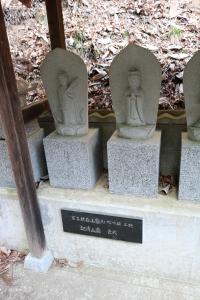
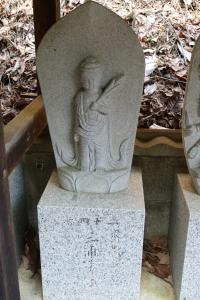
Seeing representations of each of the thirty-three Kannon all lined up filled my heart with resolve to visit the rest.
一堂に会した信達三十三観音像を見たことで、残りの信達三十三観音にも参りたい気持ちが込み上げました。
At least, I know that the rest of the sites will be easier to access.
これから参る観音堂はここより行きやすい場所にあります。
For those still haunted by a desire to visit remote locations, this same spot serves as a starting point for exploring the mountains of eastern Yanagawa.
この場所は梁川東部の山々の登山口でもあります。
On your way back, a visit to Ryūtaku Temple in the Shirane Community will provide you with proof of your adventure, in ink of black and red.
帰り道に、白根地区の龍澤寺では赤黒の墨の御朱印を頂けるので、冒険の証になります。
(Please call first.)
(まずはご連絡お願い致します。)
For those lacking the adventurous spirit needed to travel down nearly endless gravel roads deep in a mountain forest, take heart; all the Shintatsu 33 sites we visit from here on will be more easily accessible.
山奥の長い砂利道を歩く自信のない方でも心配しないでください。これから参る信達三十三観音の場所の方が行きやすいです。
I promise!
約束します!
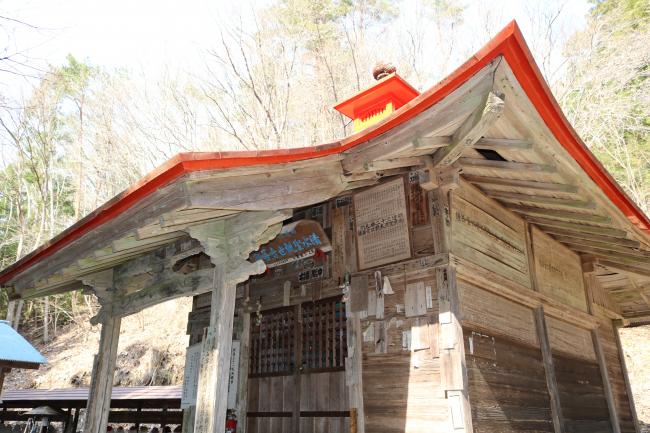
(Posted by: Tony ・ 作成者:トニー)

